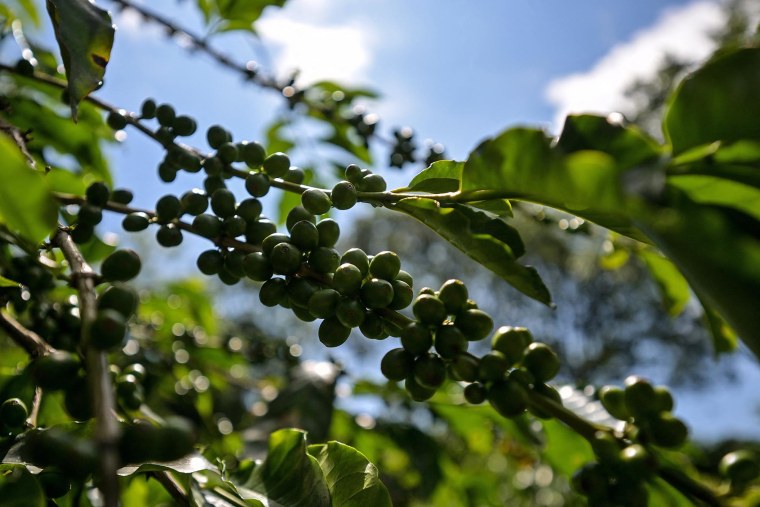
Climate impacts can increase the prevalence of diseases in coffee crops, reducing overall yields for farmers. Studies have shown that the arabica bean — which makes up roughly 60% of all coffee produced globally — is particularly vulnerable to climate change. And while U.S. coffee producers in Hawaii, Puerto Rico, California and elsewhere sell homegrown beans, their output is nowhere near enough to satisfy domestic demand, a reality shared by farmers of imported specialty crops from wasabi to goji berries.
“As the long-term climate changes, these weather conditions are far more likely to hit extremes and cause losses in coffee yields as well as volatility to coffee production,” said Jeffrey Sachs, a sustainable economist at Columbia University.







